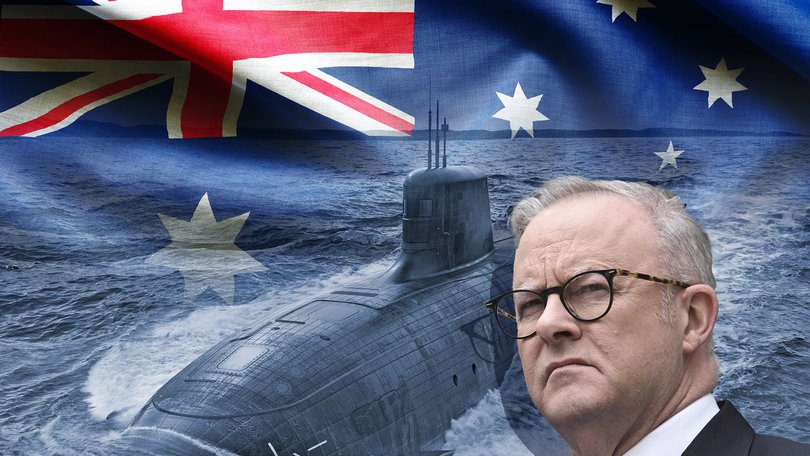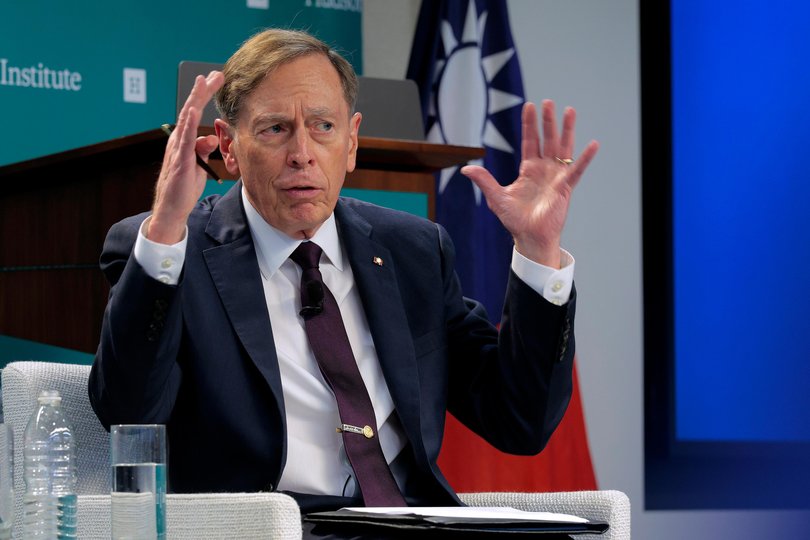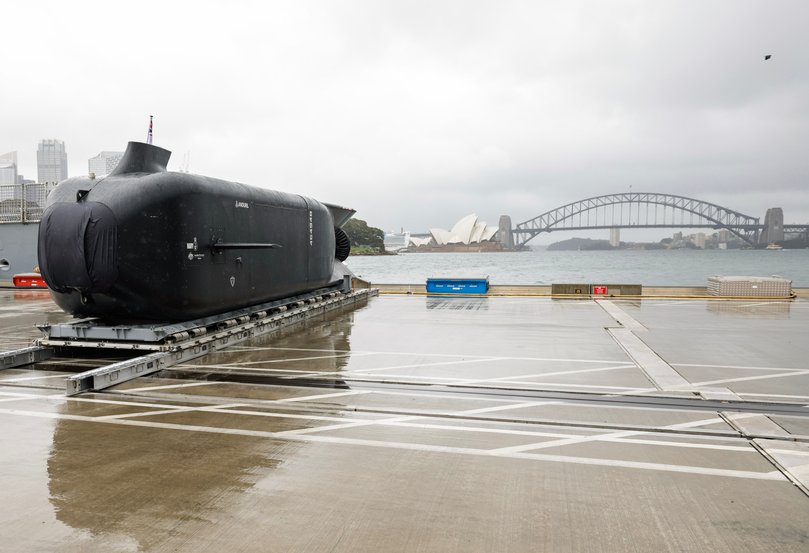EXCLUSIVE: Former CIA chief urges Australia to ramp up defence spending amid Indo-Pacific threat
Former CIA boss David Petraeus says Australia should be spending more on the military and scotched suggestions that drones will replace Australia’s need for nuclear subs.

Former CIA boss David Petraeus says Australia should be spending more on the military, warning no one has established a credible deterrence to prevent conflict in the Indo-Pacific.
Considered one of the world’s leading military analysts on the war in Ukraine, the retired four-star general also scotched suggestions that drones will replace Australia’s need for AUKUS submarines, which the Trump Administration has been reviewing.
Australia’s paltry defence spending levels, as well as AUKUS, has been a point of contention in the Albanese Government’s relationship with the Trump Administration.
Sign up to The Nightly's newsletters.
Get the first look at the digital newspaper, curated daily stories and breaking headlines delivered to your inbox.
By continuing you agree to our Terms and Privacy Policy.Both topics are likely to be raised when Prime Minister Anthony Albanese meets Donald Trump in the Oval Office for his first-ever bilateral meeting with the US President.
The President arrived in the US capital on Sunday evening after spending the weekend playing golf at his Mar-a-Lago resort, ahead of his late-Monday morning date with Mr Albanese.
The Australian Government wants to focus on critical minerals and broker a deal to extract and process Australian rare earth materials. The critical minerals supply chain is currently dominated by China and Beijing has just imposed export controls on the components that are used to make technological devices, weapons, including fighter jets and the AUKUS submarines.
The Australian Industry Group, which represents leading businesses, billed Mr Albanese’s one-on-one meeting as “the most consequential of his time so far in office with trade, AUKUS and the supply of critical minerals all to the forefront.”
Mr Trump credits himself for forcing NATO countries to commit to raising their defence spending to 3.5 per cent, and his Defence Secretary Pete Hegseth has requested Australia and Indo-Pacific allies do the same.
His administration is also reviewing whether to go through with delivering Australia submarines under the AUKUS pact.

Speaking exclusively to the Latika Takes podcast on the sidelines of the Warsaw Security Forum in Poland, General Petraeus said Indo-Pacific countries did need to lift their game when it came to making the investments to deter conflict.
“I do think that the countries in the Indo-Pacific should look very, very hard at the capabilities that they have and the capabilities they actually need. And to make sure that the elements of deterrents are rock solid,” he said.
“And I don’t think that we yet have the capabilities for that, again, including from my own country, which is spending a huge sum of money on defence.
“And I would submit that we do need to spend more and I would also submit that we need to accelerate the pace of transformation based on the future of war that we can see played out right before us in Ukraine.
“I think we have to do some real, serious looking at what we are going to buy, as well as how much we actually spend in that process.”
He singled out Japan and the Philippines for specific praise.
The Philippines has rewritten its national defence strategy, shifting from a focus on counter-insurgency to deal with military coercion and threats it increasingly and routinely faces from China.
This includes the Chinese using private and coastguard vessels to harass the Philippines’ military around artificial reefs that the CCP is trying to claim and control in the South China Sea.
Japan raised its defence spending to a record 8.8 trillion yen or $90b for the 2026 fiscal year.
“We see other countries in the region that, again, Japan and many others that are dramatically increasing in defence spending,” General Petraeus said.
“Japan is doubling its defence spending over a 10 year period, but again, it comes down to what is necessary to ensure that deterrence is absolutely solid.
“The question is, how are you spending that money and should you be transforming more rapidly?”
Australia spends around 2 per cent of its GDP on defence, and Mr Albanese has stared down pressure to make heavier investments.
But the Government is pouring an extra $12b into the Henderson shipyards in WA, which will be used to house the AUKUS submarines when the US starts using the nearby HMAS Stirling as a base from 2027.
General Petraeus, who has visited Ukraine 14 times since the full-scale invasion began in February 2022, said the Indo-Pacific had many lessons to learn from the war in Ukraine and the shift from traditional combat to one dominated by the use of drones in the air, on the land and in the sea.
He said that the US and Indo-Pacific countries had not yet sufficiently understood the rapid warfare changes made in Ukraine and how these needed to be implemented to deter aggression in the region.
But he said that critics of AUKUS who advocate that drones will replace the need for nuclear-powered submarines were wrong.

“We actually do need nuclear-powered submarines. And in fact, undersea is one of the domains in which I think traditional capabilities are still very, very significant,” he said.
“We don’t yet see drones undersea that can actually detect and take out submarines.
“Now it’s coming, and in fact, you’ll know that Ghost Shark, which is an Anduril product … that capability is going to be very significant.
“But undersea is still the area where it’s very difficult to find and then to engage undersea vehicles.
“On the surface of the sea, on the other hand and above on the ground, in the air, and so on, there is such ubiquitous surveillance now that it is very, very hard to survive.”
He said this was why forces needed to transform to fewer, larger, heavily manned, expensive sorts of weapons systems that were highly capable but less survivable.
“To a massive number, the kinds of Ukrainian numbers of unmanned systems and they should be under the sea, on the surface of the sea, in the air, on the ground, even in outer space, cyberspace, cognitive space, anywhere that in which conflict is ongoing,” he said.
“The Indo-Pacific commander (Admiral Samuel Paparo) wants to turn the Taiwan Strait into a hell-scape. That is his term for his description of what he wants that to be.
“Should there be aggression across that straight, you can’t do that unless you actually have enormous numbers, again, of unmanned systems of all types, as I’ve laid out.”
